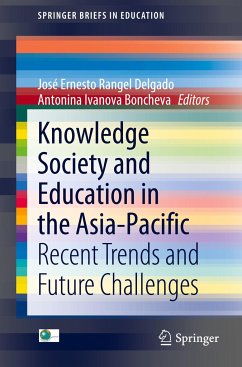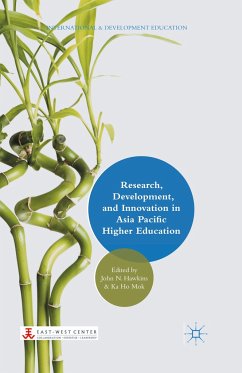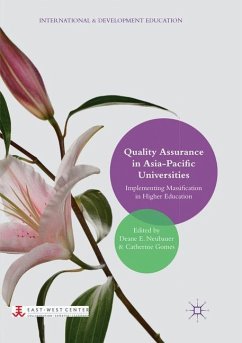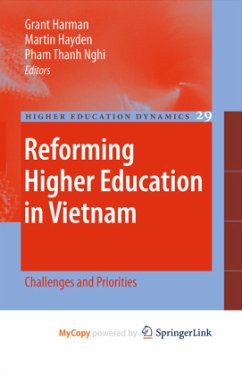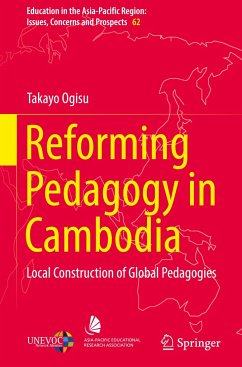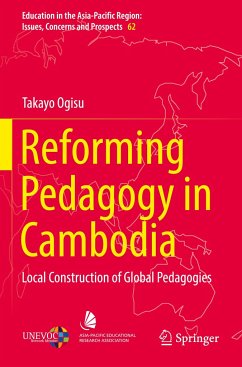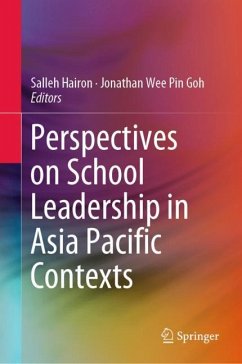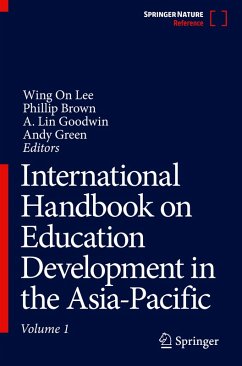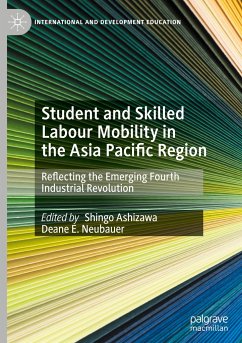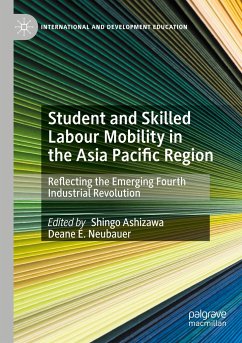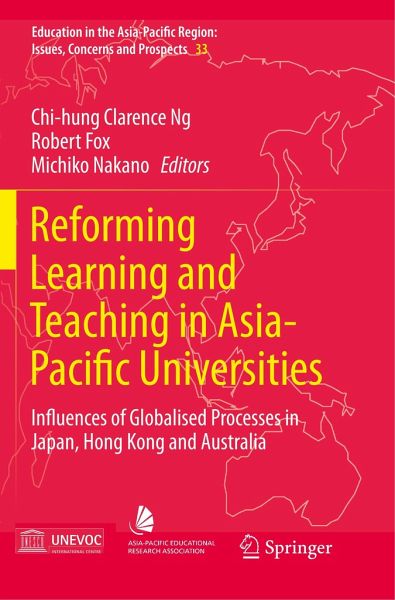
Reforming Learning and Teaching in Asia-Pacific Universities
Influences of Globalised Processes in Japan, Hong Kong and Australia
Herausgegeben: Ng, Chi-hung Clarence; Fox, Robert; Nakano, Michiko
Versandkostenfrei!
Versandfertig in 6-10 Tagen
76,99 €
inkl. MwSt.

PAYBACK Punkte
38 °P sammeln!
This book focuses on learning and teaching as the core business ofhigher education and explores reformative efforts in response to the influencesof globalised processes in three advanced economies in the Asia-Pacific region:Japan, Hong Kong and Australia. This is a significant book as it adds tolimited discussions on the globalisation of learning debates, and scholarlyreflections on the links between globalised processes and changing educationalpractices, critical to understanding the current challenges and optionsavailable for charting future development for universities in the Asia-Pacificre...
This book focuses on learning and teaching as the core business ofhigher education and explores reformative efforts in response to the influencesof globalised processes in three advanced economies in the Asia-Pacific region:Japan, Hong Kong and Australia. This is a significant book as it adds tolimited discussions on the globalisation of learning debates, and scholarlyreflections on the links between globalised processes and changing educationalpractices, critical to understanding the current challenges and optionsavailable for charting future development for universities in the Asia-Pacificregion and beyond. It rejects an essentialising perspective that considerschanges as inevitable and uniform. Instead it considers negotiations,arguments, and even resistance as competing forces and integral components ofthe process of reforming pedagogical practices in Asia-Pacific universities.This book discusses globalised processes as a new context for reforminglearning and teaching and itsfocused discussions cover topics includingmeeting the needs of new student groups, new technological practices forchange, use of English as an international language, and challenges inassessment and quality assurance.



